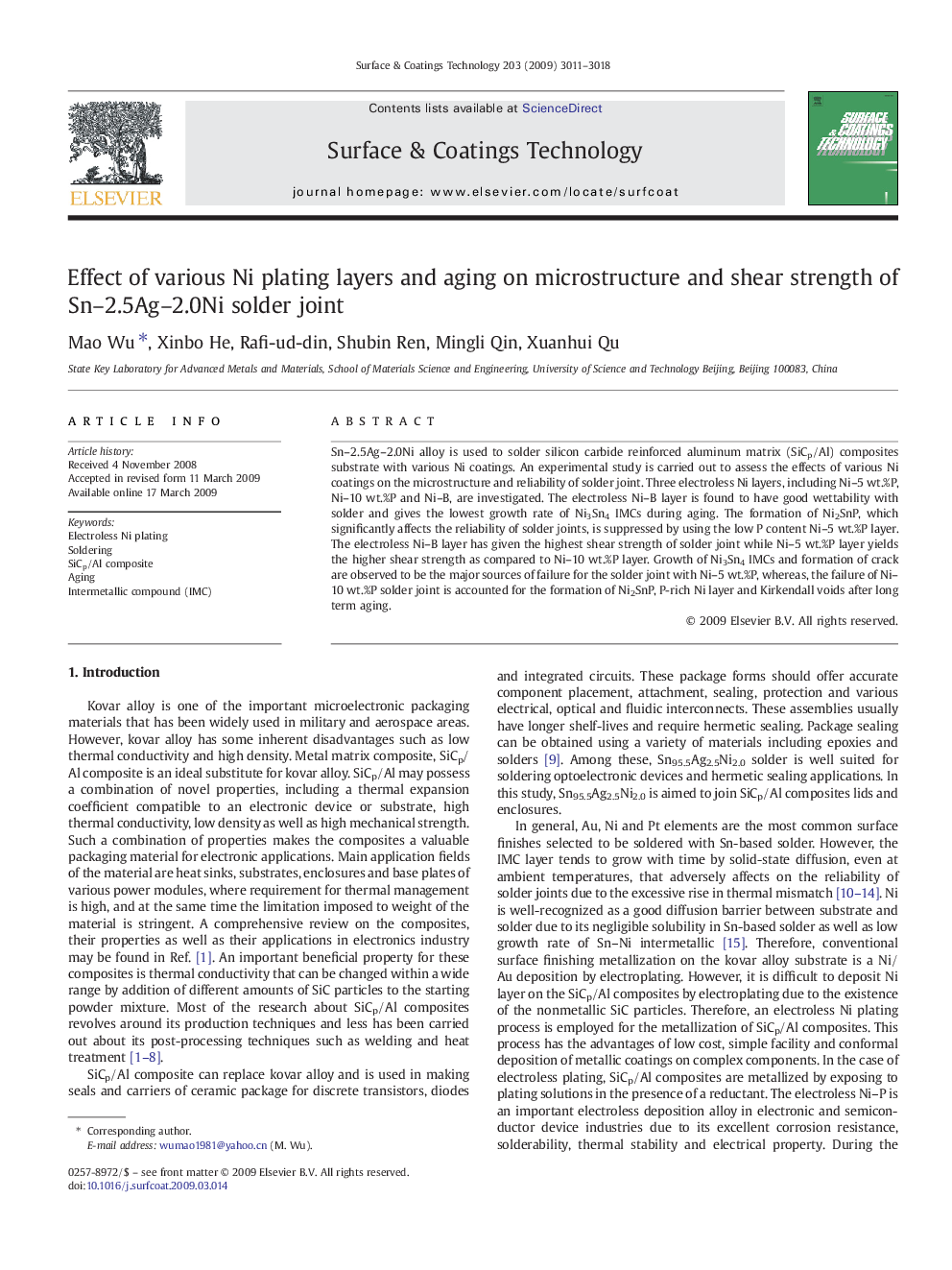| Article ID | Journal | Published Year | Pages | File Type |
|---|---|---|---|---|
| 1659913 | Surface and Coatings Technology | 2009 | 8 Pages |
Abstract
Sn-2.5Ag-2.0Ni alloy is used to solder silicon carbide reinforced aluminum matrix (SiCp/Al) composites substrate with various Ni coatings. An experimental study is carried out to assess the effects of various Ni coatings on the microstructure and reliability of solder joint. Three electroless Ni layers, including Ni-5Â wt.%P, Ni-10Â wt.%P and Ni-B, are investigated. The electroless Ni-B layer is found to have good wettability with solder and gives the lowest growth rate of Ni3Sn4 IMCs during aging. The formation of Ni2SnP, which significantly affects the reliability of solder joints, is suppressed by using the low P content Ni-5Â wt.%P layer. The electroless Ni-B layer has given the highest shear strength of solder joint while Ni-5Â wt.%P layer yields the higher shear strength as compared to Ni-10Â wt.%P layer. Growth of Ni3Sn4 IMCs and formation of crack are observed to be the major sources of failure for the solder joint with Ni-5Â wt.%P, whereas, the failure of Ni-10Â wt.%P solder joint is accounted for the formation of Ni2SnP, P-rich Ni layer and Kirkendall voids after long term aging.
Related Topics
Physical Sciences and Engineering
Materials Science
Nanotechnology
Authors
Mao Wu, Xinbo He, Rafi-ud-din Rafi-ud-din, Shubin Ren, Mingli Qin, Xuanhui Qu,
